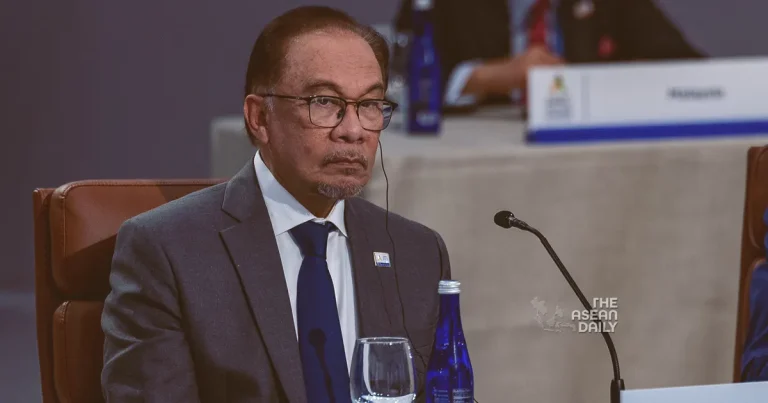5-2-2024 (KUALA LUMPUR) Malaysian Prime Minister Anwar Ibrahim has called for calm while defending the decision to reduce the jail sentence of former leader Najib Razak. The move has sparked criticism from those who believe it could undermine anti-corruption efforts.
The pardons board, chaired by Malaysia’s king before his recent abdication, halved Najib’s 12-year jail term and reduced fines. Najib is currently serving time for graft and money laundering related to the 1Malaysia Development Berhad (1MDB) scandal. The board did not provide an explanation for its decision. Najib has consistently maintained his innocence, and his family expressed disappointment, hoping for a full pardon and immediate release.
The reduction in sentence has raised concerns that the prime minister is reneging on promised reforms. Last year, prosecutors dropped corruption charges against Najib and other leaders associated with the United Malay National Organisation (UMNO), which joined forces with Anwar’s party to form a government in November 2022.
Anwar emphasized that the king’s decision to commute Najib’s sentence is final and that the monarch is not obligated to provide an explanation. He described it as “a matter of compassion” and called for understanding, stating that once explanations are given, the criticism should cease.
Anwar acknowledged that he submitted Najib’s application for a royal pardon to the board but denied doing so under pressure from UMNO. He clarified that he took action upon receiving the appeal and requested that the pardons board discuss it.
While Malaysia’s king holds a ceremonial role, the monarch has discretionary powers to grant clemency to convicted individuals, as granted by the federal constitution. Decisions made by the country’s royals are rarely challenged, and negative comments about the monarchy can be prosecuted under the Sedition Act, an old colonial-era law that has been used against individuals criticizing the royals on social media.
Latheefa Koya, the former chief of the Malaysian Anti-Corruption Commission (MACC), described the sentence reduction for Najib as a blow to the agency and its officers who investigated the 1MDB case. She also expressed concern about international cooperation in recovering 1MDB funds, as other countries closely observe Malaysia’s actions.
Ramkarpal Singh, a former deputy law minister from the Democratic Action Party, which is part of Anwar’s ruling coalition, called on the pardons board to disclose the reasons behind the commutation of Najib’s sentence. Singh stated that the government’s efforts to combat corruption have been severely undermined by the developments in Najib’s case, as the seriousness of his offense is known worldwide.
According to Malaysian and US investigators, approximately $4.5 billion was embezzled from 1MDB in a global scheme, with approximately $1 billion ending up in Najib’s personal accounts. Najib is still undergoing trial for corruption in several other cases related to 1MDB.




